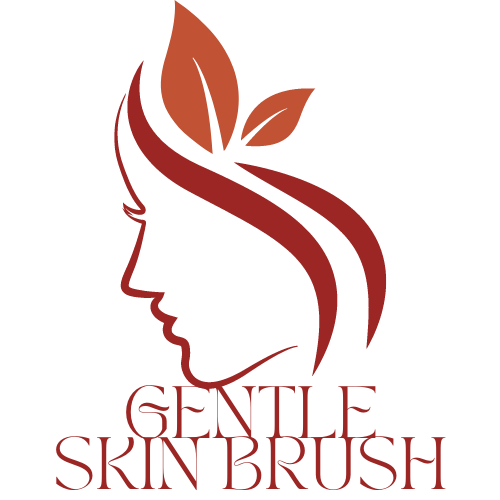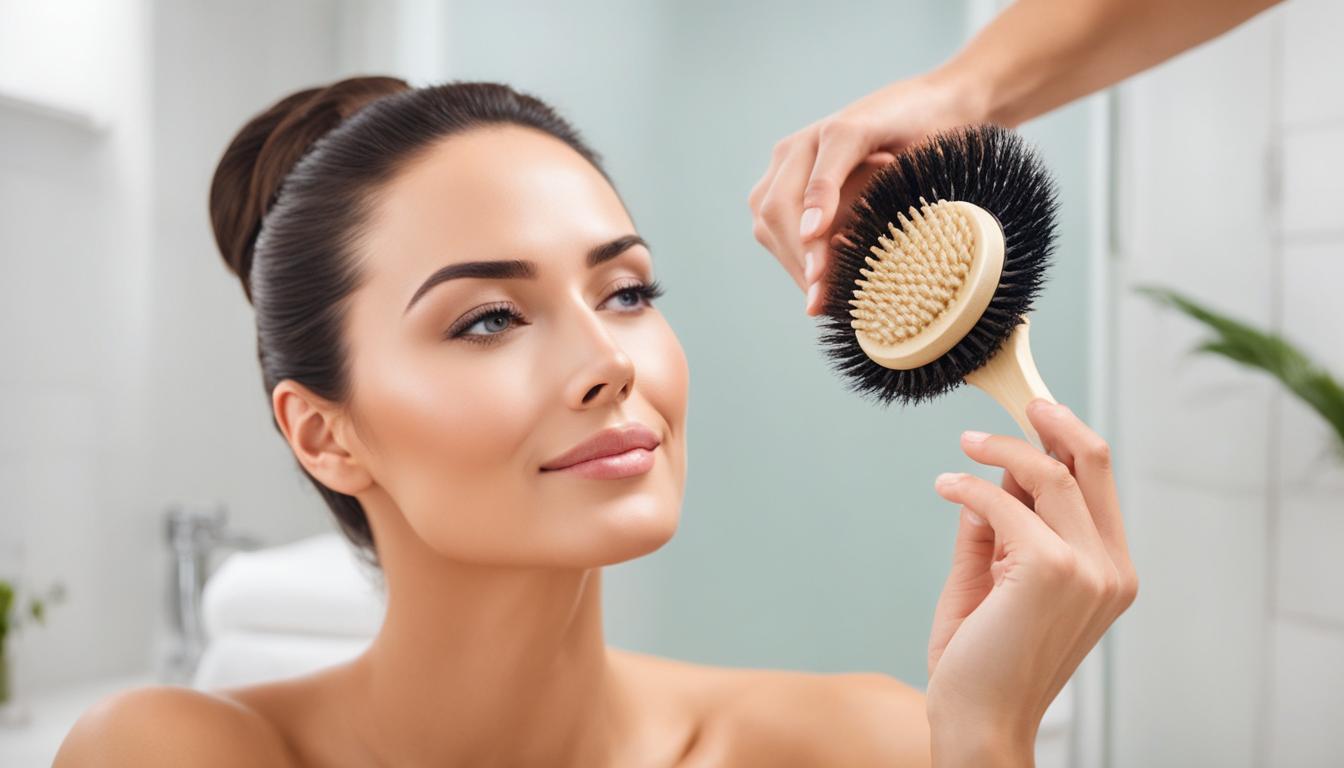There is a common belief that gargling can completely replace the need for tooth brushing, but is this really true? In this article, we will dive into the myths surrounding dental care and explore whether gargling can truly be a substitute for brushing your teeth. We will provide accurate information on dental hygiene, oral health, and the importance of maintaining a comprehensive oral care routine.
Contents
Key Takeaways:
- Gargling with mouthwash alone cannot replace brushing your teeth with a toothbrush.
- Brushing twice a day with a soft-bristled toothbrush is necessary to remove plaque and tartar buildup.
- Mouthwash can help eliminate harmful bacteria, but it does not remove plaque or tartar.
- Mouthwash should be used before brushing to expose hidden food particles and should not be rinsed with water immediately after use.
- Using excessive amounts of mouthwash can lead to dry mouth and increased bacterial growth.
With these key takeaways in mind, it becomes clear that while gargling with mouthwash can be a beneficial addition to your oral care routine, it cannot replace the essential role that tooth brushing plays in maintaining dental health and oral hygiene. It is important to brush your teeth regularly, use mouthwash as a supplemental step, and consult with your dentist for personalized guidance on your oral care routine.
The Benefits of Gargling
Gargling can offer several benefits when it comes to maintaining good oral health. While it is not a substitute for brushing your teeth, incorporating gargling into your oral hygiene routine can help freshen your breath, reduce bacteria in your mouth, and promote overall dental health.
The Freshening Power of Gargling
One of the primary benefits of gargling is its ability to freshen your breath. By swishing a mouthwash solution around your mouth, you can effectively eliminate unpleasant odors caused by food particles and bacteria. Gargling reaches areas that brushing alone may not reach, helping to dislodge hidden food particles and rinse away odor-causing bacteria.
A Reduction in Bacterial Growth
Gargling with an antiseptic mouthwash can also help in reducing the bacterial population in your mouth. Bacteria can build up on your teeth, gums, and tongue, leading to issues such as bad breath, gum disease, and tooth decay. Gargling can help eliminate these harmful bacteria, creating a healthier oral environment.
Supporting Overall Dental Health
While gargling offers these benefits, it is essential to note that it should not replace regular brushing and flossing. Brushing twice a day with a soft-bristled toothbrush and flossing daily are still crucial for removing plaque and tartar buildup and maintaining good oral hygiene. Gargling can be seen as a supplementary step in your oral care routine, enhancing the effects of brushing and flossing.
| Gargling Benefits |
|---|
| Freshens breath |
| Reduces bacterial growth in the mouth |
| Supports overall dental health when used in combination with brushing and flossing |
In Summary
While gargling can provide benefits such as freshening breath and reducing bacterial growth in the mouth, it cannot replace the necessity of regular tooth brushing and flossing. These practices are still essential for maintaining good oral health and preventing dental issues. Gargling with mouthwash can be a valuable addition to your oral hygiene routine, but it should be used in conjunction with daily brushing and flossing for optimal results.
The Importance of Tooth Brushing
Tooth brushing plays a vital role in maintaining healthy teeth and gums. It is an essential part of dental care and oral hygiene. Brushing your teeth twice a day with a soft-bristled toothbrush helps remove plaque and tartar buildup, which can lead to tooth decay and gum disease.
Using a toothbrush allows you to physically remove the plaque that accumulates on the surface of your teeth and along the gumline. This plaque is a sticky film consisting of bacteria, food particles, and saliva. If not removed regularly, plaque can harden into tartar, which can only be removed by a dental professional.
In addition to removing plaque and tartar, toothbrushing helps stimulate the gums and promote healthy blood circulation. It also helps maintain fresh breath by removing odor-causing bacteria and food particles. By brushing your teeth, you are taking an active step in preventing dental problems and maintaining optimal oral health.
While mouthwash can be a useful addition to your oral hygiene routine, it is important to understand that it cannot replace the physical action of brushing. Mouthwash can help freshen breath and reduce bacteria in the mouth, but it does not remove plaque and tartar like brushing does. Therefore, it is crucial to continue brushing your teeth regularly to ensure thorough cleaning and prevent dental issues in the long run.
| Tooth Brushing | Mouthwash | |
|---|---|---|
| Removes plaque and tartar | Yes | No |
| Reduces bacteria in the mouth | Yes | Yes |
| Promotes fresh breath | Yes | Yes |
| Stimulates the gums | Yes | No |
| Prevents tooth decay and gum disease | Yes | No |
In summary, while mouthwash can be beneficial for freshening breath and reducing bacteria, it cannot replace the importance of tooth brushing. To maintain optimal dental health, it is crucial to continue brushing your teeth twice a day with a soft-bristled toothbrush, along with flossing and regular dental check-ups. Remember, a comprehensive oral care routine is key to keeping your teeth and gums healthy.
Mouthwash as a Complement to Brushing
While mouthwash can be a valuable addition to your oral hygiene routine, it should not be seen as a substitute for tooth brushing. Brushing your teeth with a toothbrush is essential for removing plaque and tartar buildup, which can lead to cavities and gum disease. Mouthwash, on the other hand, primarily helps to freshen breath, reduce bacteria in the mouth, and provide a temporary solution for bad breath.
“Using mouthwash cannot replace brushing one’s teeth with a toothbrush.”
According to dental experts, mouthwash is most effective when used as a supplement to regular brushing and flossing. It can be used before brushing to loosen and expose hidden food particles, making them easier to remove during brushing. However, it is important not to rinse with water immediately after gargling as this can wash away the beneficial effects of the mouthwash. Instead, wait at least 30 minutes before eating or drinking to allow the mouthwash to work its magic.
“Using too much mouthwash in a day is possible, and it is recommended to use about four to five teaspoons in a 24-hour period.”
It is important to note that using too much mouthwash in a day can have adverse effects. Many mouthwashes contain alcohol, which can lead to dry mouth and increased bacterial growth. To avoid these problems, it is best to choose an alcohol-free mouthwash and use it sparingly. Four to five teaspoons of mouthwash in a 24-hour period is generally recommended. Remember, mouthwash is not a replacement for proper brushing and flossing, but rather a helpful addition to your oral care routine.
Understanding Proper Mouthwash Use
To get the most out of mouthwash, it’s important to use it correctly. While mouthwash can be a valuable addition to your oral care routine, it is not a substitute for brushing your teeth. Brushing with a toothbrush helps remove plaque and tartar buildup, which mouthwash alone cannot do. However, incorporating mouthwash into your routine can help freshen your breath, reduce bacteria in your mouth, and promote oral health.
When using mouthwash, it is recommended to gargle with about four to five teaspoons for 30 seconds to a minute. This gives the mouthwash enough time to reach all areas of your mouth and effectively kill bacteria. It’s important to note that mouthwash should be used before brushing to help expose hidden food particles that can contribute to plaque buildup.
After gargling with mouthwash, it’s best to avoid rinsing your mouth with water immediately. This allows the active ingredients in the mouthwash to continue working and provide long-lasting benefits. You can rinse your mouth with water after about 30 minutes or as directed by your dentist.
When choosing a mouthwash, look for alcohol-free options. Many mouthwashes contain alcohol, which can have a drying effect on the mouth and promote bacterial growth. Opting for an alcohol-free formula can help maintain a healthy balance of bacteria in your mouth. Additionally, it’s important to use mouthwash as instructed, following the recommended frequency and dosage.
| Mouthwash Use Tips: |
|---|
| Use mouthwash before brushing to expose hidden food particles. |
| Gargle with about four to five teaspoons for 30 seconds to a minute. |
| Avoid rinsing with water immediately after gargling with mouthwash. |
| Choose an alcohol-free mouthwash to maintain a healthy balance of bacteria. |
| Follow the recommended frequency and dosage for optimal results. |
In conclusion, mouthwash can be a beneficial part of your oral care routine when used correctly. It can help freshen your breath and reduce bacteria in your mouth. However, it should not replace brushing your teeth with a toothbrush. To maintain optimal oral health, be sure to brush twice a day with a soft-bristled toothbrush, floss daily, and incorporate mouthwash as a supplement to your routine. Remember to consult with your dentist for personalized advice on maintaining a healthy smile.
The Dangers of Overusing Mouthwash
While mouthwash can provide benefits, using it excessively can have negative consequences for your oral health. It is important to understand the potential risks associated with overusing mouthwash and to use it in moderation for optimal dental care.
One of the main dangers of overusing mouthwash is the possibility of developing dry mouth. Many mouthwashes contain alcohol, which can have a drying effect on the mouth. When the mouth becomes dry, it creates an environment where bacteria can thrive, leading to an increased risk of dental problems such as cavities and gum disease. To avoid dry mouth, it is recommended to choose an alcohol-free mouthwash.
Additionally, using too much mouthwash can disrupt the natural balance of bacteria in your mouth. While mouthwash can help eliminate harmful bacteria, it can also kill off the beneficial bacteria that are essential for maintaining good oral health. These beneficial bacteria play a role in preventing the overgrowth of harmful bacteria and maintaining a healthy pH balance in the mouth.
Finally, excessive use of mouthwash can create a false sense of security. While mouthwash can provide temporary relief from bad breath, it does not address the root cause of the problem. Bad breath is often caused by poor oral hygiene, plaque buildup, or underlying dental issues. Relying solely on mouthwash for fresh breath without addressing these underlying causes can lead to worsening dental problems over time.
Summary:
- Overusing mouthwash can lead to dry mouth, which promotes bacterial growth.
- Excessive use of mouthwash can disrupt the natural balance of bacteria in the mouth.
- Mouthwash provides temporary relief from bad breath but does not address underlying causes.
| Problem | Consequence |
|---|---|
| Dry mouth | Increased bacterial growth, higher risk of dental problems |
| Disruption of natural bacteria | Imbalance in oral microbiome, potential oral health issues |
| Reliance on mouthwash for bad breath | Failure to address underlying causes, potential worsening of dental problems |
Choosing the Right Mouthwash
With so many options available, it’s important to choose a mouthwash that suits your specific oral care needs. When selecting a mouthwash, consider factors such as your overall dental health, any specific oral concerns you may have, and your personal preferences.
Maintaining optimal oral hygiene: If you’re looking for a mouthwash to support your daily oral hygiene routine, opt for an alcohol-free mouthwash that helps kill bacteria and freshen breath. Look for one that contains fluoride, as this can help prevent tooth decay and strengthen enamel.
Addressing specific concerns: If you have specific oral health concerns, such as sensitive teeth or gum disease, choose a mouthwash that targets those issues. There are mouthwashes available that are designed to soothe sensitivity or control plaque and gingivitis. Consult with your dentist or oral health professional to find the best option for your needs.
Additional features: Some mouthwashes offer additional benefits, such as whitening properties or the inclusion of natural ingredients. If you’re looking to brighten your smile, choose a whitening mouthwash that helps remove surface stains. For those who prefer natural products, seek out mouthwashes that use ingredients like tea tree oil or aloe vera.
| Key Considerations | Things to Look for |
|---|---|
| Dental Health | Fluoride, alcohol-free |
| Specific Concerns | Sensitivity, gingivitis control |
| Additional Features | Whitening, natural ingredients |
Remember, mouthwash is not a substitute for regular brushing and flossing. It should be used as a complement to your daily oral hygiene routine. Consult with your dentist or dental hygienist for personalized recommendations based on your individual needs to maintain optimal oral hygiene and overall dental health.
Conclusion
While gargling can offer some benefits, it is not a substitute for regular tooth brushing and should be seen as a complementary addition to your oral hygiene routine. Using mouthwash alone cannot remove plaque and tartar buildup on the teeth, which can lead to tooth decay and gum disease. Brushing twice a day with a soft-bristled toothbrush is essential for maintaining dental health and preventing oral problems.
Mouthwash, when used correctly, can help freshen breath, reduce bacteria in the mouth, and be a short-term fix for bad breath. It can be used before brushing to loosen food particles and provide a more effective cleaning. However, it is important to note that mouthwash should not be rinsed with water immediately after use, as this can dilute its effects.
When choosing a mouthwash, opt for an alcohol-free formula as alcohol can dry out the mouth and promote bacterial growth. Using mouthwash excessively, more than four to five teaspoons in a 24-hour period, can have adverse effects such as dry mouth and increased bacterial growth. It is best to use mouthwash sparingly and consult with your dentist for personalized recommendations.
In conclusion, maintaining a comprehensive oral care routine is crucial for dental health. While gargling with mouthwash can provide some benefits, it should never replace the importance of regular tooth brushing. Brushing your teeth twice a day, using the correct technique and a soft-bristled toothbrush, is the foundation of good oral hygiene. By incorporating mouthwash as a complementary addition to your routine, you can further enhance your oral health and keep your smile bright and healthy.
FAQ
Can gargle replace tooth brushing?
No, gargling cannot replace tooth brushing. While gargling can help get rid of harmful bacteria, it does not remove plaque or tartar buildup on the teeth. Brushing twice a day with a soft-bristled toothbrush is necessary to remove plaque and tartar.
How much mouthwash should I use in a day?
It is recommended to use about four to five teaspoons of mouthwash in a 24-hour period. Using too much mouthwash can be harmful, so it’s best to stick to the recommended amount.
Does mouthwash remove plaque and bacteria like brushing and flossing?
No, mouthwash is a short-term fix for bad breath and does not remove plaque and bacteria like brushing and flossing can. While mouthwash can help eliminate some bacteria, it is not as effective as physically removing plaque through brushing and flossing.
Does mouthwash with alcohol have any negative effects?
Many mouthwashes contain alcohol, which can dry the mouth and promote bacterial growth. It is best to choose an alcohol-free mouthwash to avoid these potential negative effects.
How should I use mouthwash effectively?
It is recommended to use mouthwash before brushing to expose hidden food particles. After gargling, avoid rinsing with water immediately to allow the mouthwash to continue its work. Follow the instructions on the mouthwash bottle for specific usage guidelines.





Leave a Reply